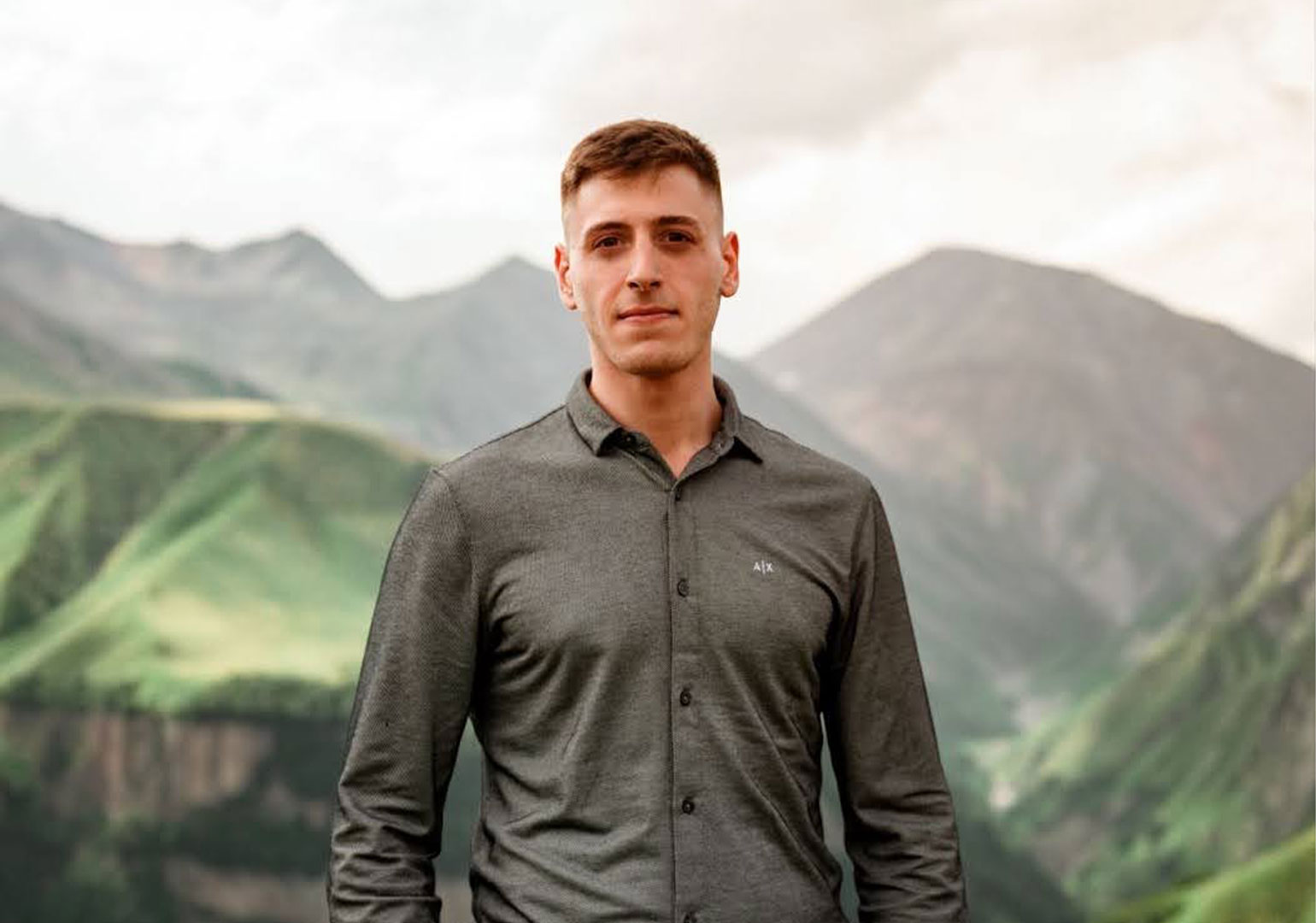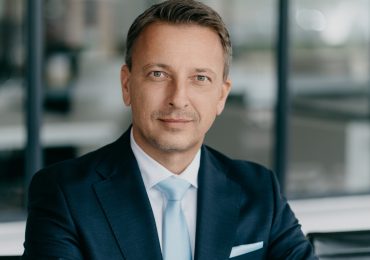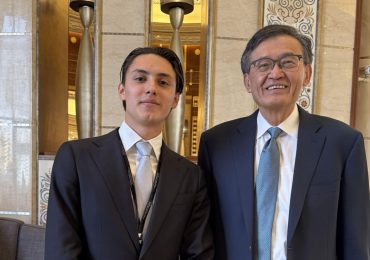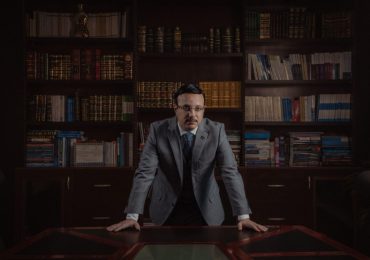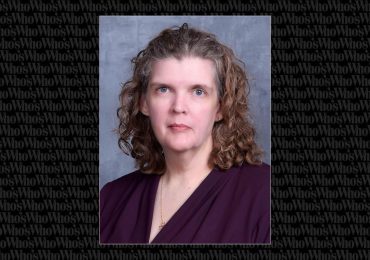Photo Courtesy of Akaki Darbuashvili
The air in Tbilisi’s old town hums with a quiet tension. Beneath the shadow of the Narikala Fortress, where Silk Road merchants once haggled over spices, a different kind of trade now thrives. In a sunlit apartment-turned-office, Akaki Darbuashvili types furiously on a laptop, debugging code for a commercial real estate platform used by brokers from Berlin to Boston. At 29, he’s already spent half his life building the digital scaffolding that powers industries most Georgians will never encounter firsthand.
His story begins not in a tech hub, but in a Soviet-era apartment where a secondhand computer became his playground. By 10, he was writing simple games; by 16, he was freelancing for clients. Today, his fingerprints are on systems used by Keller Williams, Y Combinator (YC) startups, and a growing list of firms betting big on AI’s potential to reshape the real estate industry.
Talent Knows No Borders
Darbuashvili didn’t set out to become the engineer behind some of Silicon Valley’s most ambitious startups—his journey began much earlier, in a small technology school in Georgia. At just 10 years old, he enrolled in Mziuri, a specialized institution for young tech talent, where he immersed himself in programming and thrived in competitive academic olympiads. By 10th grade, he had reached the finals of Georgia’s national technology olympiad, ranking among the country’s top 15 and narrowly missing selection for the international team.
That early exposure to high-level problem-solving laid the groundwork for what would follow. Drawn to the world of web development, he began building real-world projects and, by 16, joined the acclaimed Georgian marketing agency LeavingStone—well before most of his peers had considered a career path. It was there that Darbuashvili began applying his skills in a professional setting, setting the stage for a career that would soon expand far beyond national borders.
The Early Code: From Tbilisi to the World Stage
Darbuashvili’s rise mirrors Georgia’s own tech evolution—a post-Soviet nation leveraging its grit to carve space in the global digital economy. The country’s IT exports grew by 20 percent in 2023, with engineers like Darbuashvili leading the charge. But his path was anything but linear.
“I didn’t have mentors or hackathons,” he recalls. “Just library books and a dial-up connection.” While peers played soccer, he reverse-engineered rudimentary programs, teaching himself JavaScript and Python through trial and error. By 19, he had joined AltaSoftware, a leading Georgian firm providing core software services to nearly every major bank in the country. The role marked a significant step forward, exposing him to complex systems and enterprise-level development far beyond typical entry-level work.
Proving Meritocracy is not a Myth
In 2017, Darbuashvili took a leap that would transform his career—applying to Toptal, the elite freelancing platform that rejects 97 percent of applicants. “I figured I had nothing to lose,” he says. What followed was a six-stage vetting process: algorithm tests, live coding challenges and a simulated project with a senior engineer. He passed.
For seven years, he’s remained in Toptal’s top tier, building everything from video editors to AI-driven real estate tools. His secret? A relentless focus on “the unsexy work that makes systems hum”—database optimizations, query performance tweaks and architecture that scales.
Engineering Stability at Startup Speed
Darbuashvili’s work with ReSquared (YC W21) offers a clear case study in his impact. As the company’s very first hire—not just its first technical one—he partnered directly with the founder to build the application from the ground up. He overhauled their backend architecture, replacing a fragile, patchwork Python setup with a robust stack based on Node.js and MongoDB.
The new infrastructure enabled the platform to handle millions of commercial property listings in real time, matching brokers with tenants through machine learning. Under his technical leadership, ReSquared was accepted into Y Combinator’s Winter 2021 batch and has since grown into a thriving company with a 40+ person team.
Prior to ReSquared, Darbuashvili had already made his mark working on a large-scale real estate project for Keller Williams through Nagarro’s Mokriya division. There, he architected a microservices-based solution that dramatically reduced query times—technology that continues to power one of the largest property search platforms in the U.S.
Where AI Meets Brick-and-Mortar
Darbuashvili’s current venture, ModernDesign, embodies his philosophy: “Tech should solve actual problems, not just chase trends.” The startup’s AI tools tackle real estate’s pain points with surgical precision.
- Listing Generation: AI writes SEO-optimized descriptions in seconds, pulling from databases of local pricing and design trends.
- Virtual Staging: Upload a photo of an empty room, and the platform populates it with furniture tailored to the buyer’s style—mid-century modern, industrial loft, or Georgian traditional.
- Repair Cost Predictor: Machine learning models analyze property photos to estimate renovation expenses, down to regional labor rates.
The numbers validate the approach. The global AI-in-real-estate market, valued at $222.65 billion in 2024, is projected to reach nearly $1 trillion by 2029. ModernDesign’s tech doesn’t just follow the wave—it drives it. By keeping the focus on practical applications, it’s proving that tech grounded in real needs always outperforms the hype.
The Georgian Edge: Turning Constraints into Fuel
Darbuashvili’s edge isn’t just his technical fluency—it’s the mindset forged from building with limited resources and high expectations. Coming up in Georgia’s lean but fiercely competitive tech circles taught him to extract maximum value from minimal tools, a discipline that now translates seamlessly into high-stakes global projects. That same scrappy precision he applied at startups like ReSquared and legacy firms like Keller Williams continues to define his work today.
This resourcefulness shines in his work. At Prosperia, a Toptal client, he reduced a MongoDB aggregation query’s runtime from 60 seconds to 10 by reindexing and streamlining pipeline stages. For Easyshair, he built a Stripe-integrated payment system that handled subscription nuances across 15 countries.
“Georgian engineers don’t have safety nets,” observes a Tbilisi-based tech recruiter. “When Akaki says he’ll deliver, he does—because failure isn’t an abstract concept here.”
Debugging the Future
Darbuashvili’s next challenge? Scaling ModernDesign while navigating AI’s ethical minefields. “Bias in property algorithms isn’t hypothetical,” he notes. “If your training data overlooks certain neighborhoods, your tool becomes part of the problem.”
He’s tackling this by diversifying datasets and implementing transparency protocols—efforts that align with broader industry shifts. By 2026, analysts predict that 60 percent of PropTech firms will adopt AI ethics guidelines, up from 25 percent today.
Yet for all the technical triumphs, Darbuashvili’s most enduring legacy might be his refusal to accept geography as destiny. “Tbilisi to Silicon Valley isn’t a journey—it’s a Zoom call,” he says. “The barriers aren’t physical anymore. They’re in our heads.”
A New Blueprint for Tech Success
Darbuashvili’s career challenges the traditional narrative of where innovation begins—and who drives it. He’s built core systems for major American companies, led the technical launch of high-growth startups, and even spent time on the ground at Keller Williams’ Austin headquarters as backend lead, consulting for preparing their real estate platform for production.
What sets him apart isn’t geography—it’s approach. His path shows that world-class engineering isn’t confined to elite campuses or venture-backed boardrooms. It’s shaped by curiosity, discipline, and the ability to execute under pressure—whether in Tbilisi or Texas.
As AI continues to flatten global tech hierarchies, Darbuashvili’s trajectory signals a larger shift: the future of software isn’t tied to zip codes. It belongs to builders who can think independently, adapt quickly, and deliver reliably, wherever they are.
“The real challenge,” he says, “is staying ahead of a world that’s changing faster than ever. That’s what keeps me moving.”

